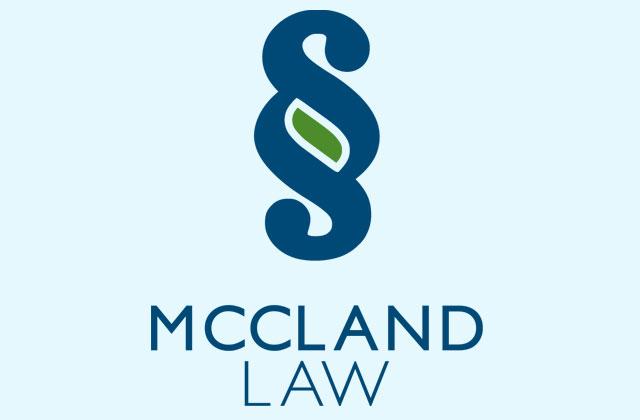By Stacy McCland
Most people have heard the phrase Power of Attorney and have some idea of what it entails. But, a Power of Attorney can actually mean many different things and serve many different functions.
First of all, let’s understand the basics. There are two primary people in a Power of Attorney: The Principal and the Agent. The Principal is the person granting powers, and the Agent is the person who is allowed to act with those powers on the Principal’s behalf. Of course, with that power comes responsibility, most importantly, a legally enforceable fiduciary duty.
For estate planning purposes, most attorneys prepare what is known as a Durable Power of Attorney for their clients to execute with several, all-encompassing powers granted to the Agent in case of the Principal’s unavailability or incapacity. When a Power of Attorney is “durable”, it means it continues even if the Principal becomes incapacitated. Durable Powers of Attorney are becoming more and more important as identity theft has increased exponentially and financial services are faced with fraud on a daily basis. If you don’t have a Durable Power of Attorney in Florida, and you become incapacitated for any reason, your family and friends will likely not be able to handle your finances in an efficient manner. At this point, many times a guardianship becomes a necessity and is much more time-consuming, intrusive and expensive.
That being said, while a Durable Power of Attorney is very important to have in your estate planning portfolio, it is also important to note that “springing” Powers of Attorney are not legal in Florida as they are in other states. What does this mean? In a “springing” Power of Attorney, the Agent only becomes entitled to the powers if the Principal becomes incapacitated. In other words, under Florida law, an Agent under a Durable Power of Attorney assumes powers the moment the document is executed. When you name an Agent to have power over your finances, you are giving them a present power. You want to pick this person very carefully. It’s not just a stop-gap measure in case something happens to you. It becomes effective immediately.
What if you name someone as your Agent, and they abuse it by exploiting this trust and mishandle your money? Under Florida law, an Agent has a fiduciary duty to the Principal and must generally hold, manage, and spend funds in a manner which serves the Principal’s best interest. While it may be somewhat subjective as to what is best for the Principal in certain matters, the Agent must never do acts that only serve themselves. If an Agent goes too far in this type of activity, there can be criminal charges on top of civil liability.
A Durable Power of Attorney is revocable unless and until the Principal becomes incapacitated. If a person is acting as the Agent of an incapacitated person, and family members or friends believe that some type of exploitation is occurring, they can petition the local court to intervene and suspend the Durable Power of Attorney while proof of exploitation is determined.
Florida statutes have enumerated a list of extraordinary powers that the Principal must initial if they want the Agent to have that specific power. When we review a client’s prior documents in our office, we are often surprised to find that the client has initialed all of the boxes even though they don’t understand them. Some of these boxes allow the Agent to change rights of survivorship and beneficiaries. Most of our clients do not actually wish for the Agent to have these powers, and we rarely recommend them except under exceptional circumstances. When you are executing a Durable Power of Attorney, we highly encourage you to carefully read and understand these particular sections before you initial next to them. It is not a requirement that you do so.
There are other types of Powers of Attorney that are not as well-known but are very useful. For example, if you are unable to attend a real estate closing because you have trip planned out of town, you can grant a family member or friend a Limited Power of Attorney to execute that transaction on your behalf. If you have a business interest, and you want a family member or friend to make decisions at a board meeting or act in some other manner on your behalf, a Limited Power of Attorney can also be used for these types of actions.
While both Durable Powers of Attorney and Limited Powers of Attorney are incredibly useful, they both grant a tremendous amount of power. It is important to understand the extent of that power and what you are enabling someone to do on your behalf. If you have any questions about Powers of Attorney or similar documents, please call our office, and we can assist you.




